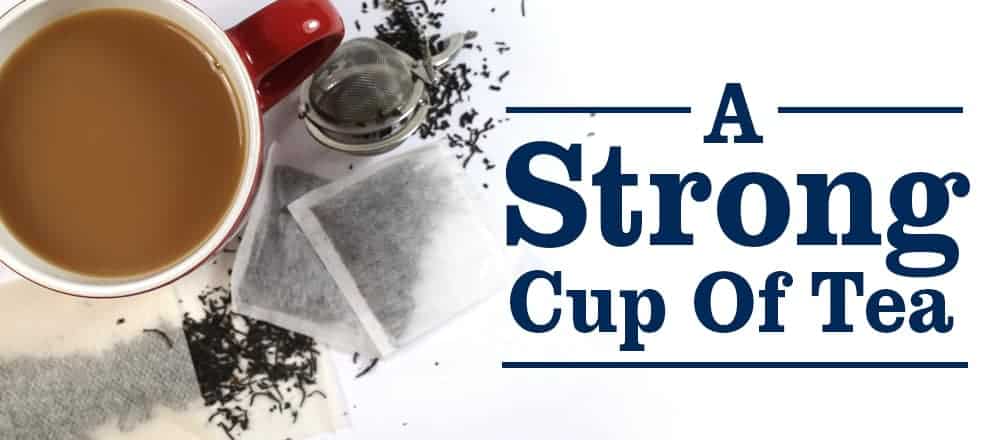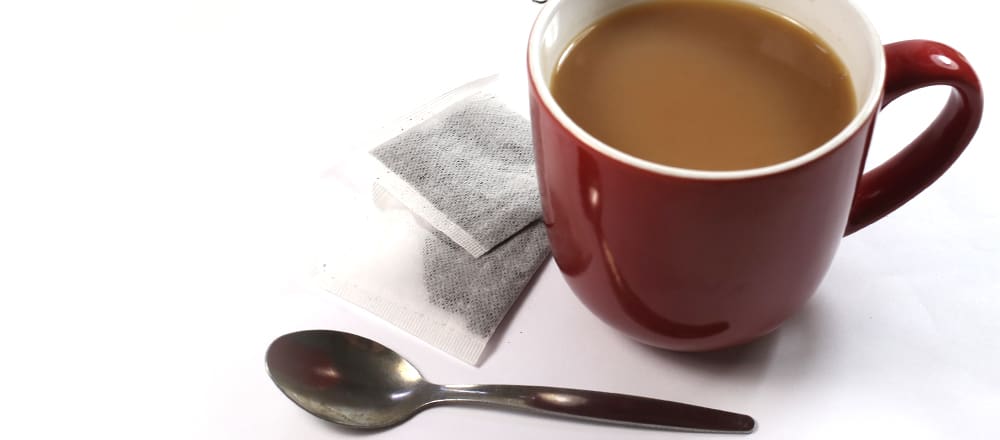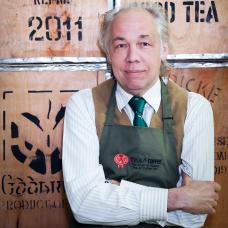How to Make a Strong Cup of Tea

For some, Tea is best served strong. But how, exactly, does one make a strong cup of Tea? There are actually a couple of answers to this question, which we will explore in the blog below.
Read on to find out more about how to make a strong cup of Tea and what types to use. We will also explore:
Table of Contents
So, without further ado, let’s delve deep into the world of hearty brews. Let’s discover the ‘whys’, ‘hows’, ‘whats’ and ‘what ifs’ surrounding a strong cup of Tea.

How to Make a Strong Cup of Tea
If “how to make a strong cup of Tea?” is the same to you as “how to make the perfect cup of Tea?”, there’s good news. It’s simpler than many might think. While making a cuppa, if you add a few more minutes to its brewing time, the results are unmistakable.
In the case of Black Tea, for example, infusing for five minutes rather than three minutes makes all the difference.
In this fast-paced society, being patient seems to be a forgotten art. We want everything yesterday and are seldom willing to wait. But when it comes to Tea, allowing the leaves to infuse for longer makes it all worthwhile. Why not follow these instructions below?
- Put Loose Leaf Black Tea into one of our Loose Tea Filters.
- Boil water, making sure it’s fresh for better oxygen levels and, ultimately, better taste. If you live in a hard water area, consider trying our Heritage Hard Water Tea.
- Allow the water to cool to no more than 96°C.
- Put the Tea Bag in a PORCELAIN cup. Porcelain has the least influence on the taste. Metal cups, in comparison, create an unwelcome metallic undertone.
- Add freshly boiled water to your cup.
- Let the infusion steep for AT LEAST 3 minutes and NO MORE THAN 5 minutes. The longer you leave it, the stronger it tastes. Past 5 minutes and it might start getting bitter.
- Add a dash of milk and stir THOROUGHLY, or a milk alternative.

Strong Tea Bags
So what Tea Bags should you use when making a strong cup of Tea? We recommend our flagship beverage: Pluckley Tea is popular for being strong tea bags.
This particularly delectable infusion takes its name from the Kentish village in which our company resides. It’s a blend of Assam and Kenya Tea, both of which combined make for a match made in heaven.
When brewed, Pluckley Tea offers a refined malty taste with earthy undertones. There is nothing quite like it in terms of flavour, health benefits and, indeed, strength.
Another excellent choice is Kentish Breakfast Tea. Similar to the above, it contains Assam Tea. Unlike its Pluckley counterpart, however, this beverage replaces Kenya with Ceylon Tea. Upon your first sip, expect powerful malty notes with almost chocolatey undertones.

Strong Leaf Tea
There is another way of having an extra kick to your cuppa. Choose Broken Orange Pekoe (BOP)! The term “broken,” as the name likely suggests, refers to the leaves being broken into small pieces.
This often boasts a stronger character in cup than that of a FOP (Flowery Orange Pekoe) Tea.
Here at The Kent and Sussex Tea and Coffee Company, we stock many Loose Leaf BOP Teas. Why not start with either Kenya Tea (BOP) or Ceylon Tea BOP Dimbula Gouravilla? The former, as well as others like it, is particularly popular here in the UK.
Indeed, Kenya Tea as a whole account for over 50% of Britain’s Tea consumption. The latter, which comes from Sri Lanka, is also much sought-after.

Does Strong Tea Have More Caffeine?
It’s debatable as to whether a cup of Strong Tea contains more caffeine than a weak one. First, it’s worth noting that Black Tea has an average of 40-45 mg of caffeine per 8 oz cup.
However, longer brewing might, similar to strength, increase the caffeine content in tea.
A study conducted at the University of Florida, USA, and published in the Journal of Analytical Toxicology has the answers. Researchers discovered that one-minute brew times yielded 14 milligrams of caffeine for Black Tea and 12 milligrams for Green Tea. Many would agree that this is a minimal difference in terms of caffeine levels.
However, a three-minute brewing time saw the former beverage yield 27 milligrams and the latter 22 milligrams. And so the gap widens.
Finally, the study concluded that a five-minute brewing time (which isn’t recommended for Green Tea!) had the biggest difference.
Here, the results determined that Black Tea contained 61 milligrams while Green Tea had 41 milligrams. So, in other words, be sure to brew for longer if you’re looking for an extra caffeinated kick!

Is Strong Tea Good for you?
Just because longer brewing times increase strength and caffeine doesn’t mean they do the same for health benefits. Nevertheless, there is much to be said about Black Tea, strong or weak, and how it can improve one’s everyday way of life.
For starters, Black Tea contains a wealth of vitamins, minerals and antioxidants capable of combating free radicals in the body. Ultimately, this reduces the risk of developing numerous chronic conditions, including cardiovascular disease, type-2 diabetes and even, potentially, cancer.
But that’s not all. There are, indeed, other Black Tea benefits such as improved oral health, enhanced cognitive function, immune system support and even weight loss.
Whether you like your morning brew delicate or flavoursome doesn’t matter here. Great news, huh?

Is Strong Tea Bad for you?
Determining whether a strong cup of Tea is bad for you depends on your perspective. For example, if it contains more of a certain stimulating compound than average, there’s a chance that the Effects of Caffeine could include negative side effects.
Caffeine overconsumption famously leads to jitteriness and sleeplessness, as well as dehydration and energy crashes. Additionally, it can fuel stress hormones, which may have an impact on mental health.
There is also the potential of it causing digestive issues, high blood pressure, rapid heart rate, caffeine addiction and, most ironically, fatigue.
Those who’re pregnant, in particular, should exercise caution when consuming caffeine. NHS Choices urges pregnant women not to have more than 200mg daily. This is the equivalent to two cups of Coffee a day. The same applies to those who’re caffeine-sensitive.

Conclusion
A strong cup of Tea can be made from almost any type so long as you brew it for longer. With Black Tea, five minutes infusing should suffice.
The other option is BOP Tea, which tastes naturally stronger due to the production methods applied to its making.
Whatever you opt for, be sure to choose The Kent and Sussex Tea and Coffee Company. We pack every Loose Leaf Tea, Tisane and Coffee Beans fresh to order, ensuring not only quality but also consistency. What more could you want from your morning cuppa?

 Loose Leaf Tea
Loose Leaf Tea Pyramids
Pyramids Tea Bags
Tea Bags Africa
Africa Assam
Assam Ceylon
Ceylon Chinese
Chinese Darjeeling
Darjeeling European
European Indian
Indian Japan
Japan Nepal
Nepal South East Asia
South East Asia Ayurveda Tea
Ayurveda Tea Black Tea
Black Tea Chai Tea
Chai Tea Flowering Tea
Flowering Tea Fruit Tisanes
Fruit Tisanes Green Tea
Green Tea Herbal Tea
Herbal Tea Matcha Tea
Matcha Tea Oolong Tea
Oolong Tea Organic Tea
Organic Tea Pu erh Tea
Pu erh Tea Rooibos Tea
Rooibos Tea White Tea
White Tea Asian Coffee
Asian Coffee Caribbean Coffee
Caribbean Coffee Central American Coffee
Central American Coffee South American Coffee
South American Coffee Coffee Blends
Coffee Blends Decaffeinated Coffee
Decaffeinated Coffee Espresso Coffee
Espresso Coffee Ethically Sourced Coffee
Ethically Sourced Coffee Flavoured Coffee
Flavoured Coffee Organic Coffee
Organic Coffee Single Origin Coffee
Single Origin Coffee Chocolate 1
Chocolate 1 Chocolate 2
Chocolate 2 Chocolate 3
Chocolate 3 Chocolate 4
Chocolate 4 Chocolate 5
Chocolate 5 Chocolate 6
Chocolate 6 Chocolate 7
Chocolate 7 Chocolate 8
Chocolate 8 Chocolate 9
Chocolate 9 Loose Tea Filters
Loose Tea Filters Tea Accessories
Tea Accessories Tea Bricks
Tea Bricks Tea Caddies
Tea Caddies Tea Caddy Spoons
Tea Caddy Spoons Tea Gift Ideas
Tea Gift Ideas Tea Infusers
Tea Infusers Tea Strainers
Tea Strainers